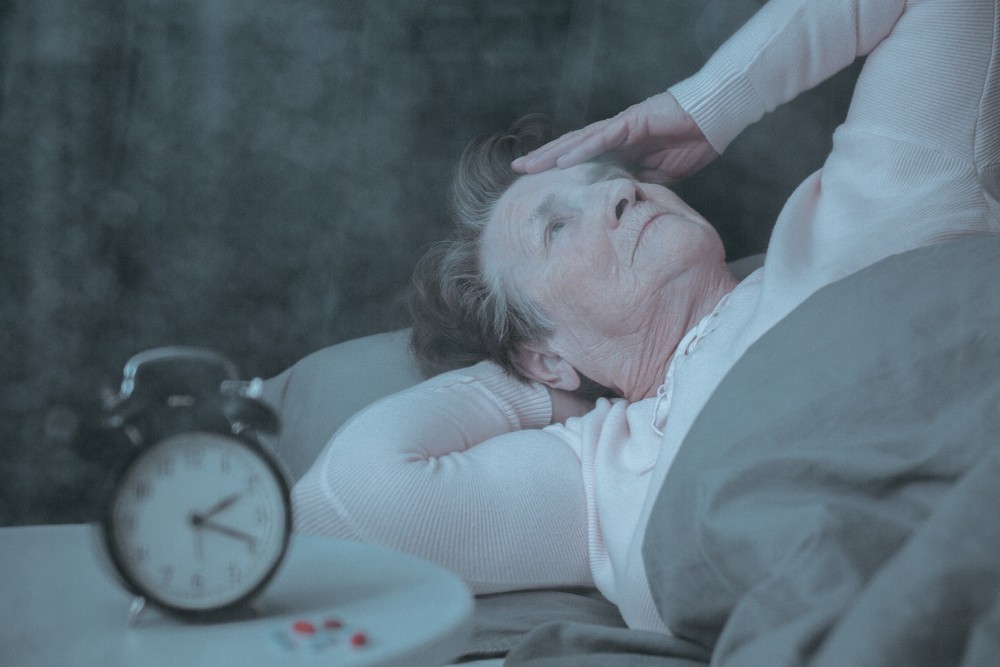Trick your irregular sleep patterns into a quality sleep
Anxiety is a natural response to stress. Feeling apprehensive about what’s to come could disrupt your sleep cycle. Symptoms of anxiety in seniors are sometimes not that obvious as they often develop gradually and it can be hard to know how much is too much.
 Approaching 60 leads you into a maze of pattern changes. As you age, you may experience an anxiety-causing difference in your sleep cycle. Most adults, on average, require a minimum of seven hours of sleep each night to be well-rested and feel fresh the next morning. The human body clock may differ from person to person. It is important not to beat yourself up for what you may think is too little sleep compared to others. Quality sleep plays a significant role in abilities such as learning, thinking clearly, making decisions, and memory.
Approaching 60 leads you into a maze of pattern changes. As you age, you may experience an anxiety-causing difference in your sleep cycle. Most adults, on average, require a minimum of seven hours of sleep each night to be well-rested and feel fresh the next morning. The human body clock may differ from person to person. It is important not to beat yourself up for what you may think is too little sleep compared to others. Quality sleep plays a significant role in abilities such as learning, thinking clearly, making decisions, and memory.
A solution to not feeling anxious all the time is to live a healthy, well-balanced life and a good night’s sleep. Adults over sixty tend to sleep early and less deeply than they were younger. As the body ages, the level of growth hormones reduces. When this happens, the body produces less melatonin, which often leads to experiencing more fragmented sleep and wake up more often during the night. A recent study conducted online by the global market research firm KJT Group ranked India #1 on getting the best quality sleep in the world. “However, adults across the globe deal with various health and lifestyle factors that can stand in the way of getting them the best night’s sleep,” said the survey. Hence it is important to understand the underlying causes of what’s keeping you awake at night.
Feeling of anxiety can be normal and healthy, or can indicate an anxiety problem. If your feelings of anxiety are extreme, lasting for more than six months then you may have an anxiety disorder. The term “anxiety” refers to many different types of health conditions such as:
Generalised Anxiety Disorder (GAD) – A senior suffering from GAD will often worry about everyday routine imagining the worse of the situations accompanied by physical symptoms such as fatigue, trembling, nausea, and headache.
Panic disorder – A sudden feeling of panic that strike repeatedly without warning often with a physical symptoms of dizziness, shortness of breath, heart palpitation, abdominal discomfort and fear of dying.
Obsessive Compulsive Disorder (OCD) – The uncontrollable urge to repeatedly perform tasks aimed at calming distress followed by recurrent unwanted thoughts (obsession). Tasks such as washing hands, counting, checking, cleaning, and so on.
Phobias – Feeling extreme disabling and irrational fear that poses little or no actual danger that cause seniors to limit their lives. Common phobias include agoraphobia (fear of the outside world), fear of heights, social phobia and so on.
In seniors, anxiety often goes unrecognised and undertreated. Anxiety can make it hard, if not impossible, to enjoy life. It is essential for seniors to make efforts to live a healthy, well-balanced life.
Here are some tips that can help you ease your anxiety problems for a good night’s sleep:
- A bedtime routine – These include irregular sleep hours, a high amount of alcohol consumption before bedtime, and falling asleep with the television on or usage of the phone. The blue light given off by screens is stimulating and can keep you awake. Instead, use the hour before bed as quiet time. Keep your room comfortable and dark. If needed, a dim night light would work too. Have a consistent sleep schedule as it will improve your sleep quality.
- Usage of medicines – Adults over sixty sometimes have to consume multiple medications for their medical conditions. The combination of drugs and their side-effects can impair sleep. Your doctor may be able to make changes to your medication to improve sleep.
- Share your worries – Significant life changes such as retirement, passing away of a loved one, caring for grandchildren, worries of not being able to live independently, deterioration of physical abilities can cause stress. The best way to deal with stress would be to talk it out. Find someone you can talk to and share how you feel; this will improve your mood and sleep better.
- Get some morning sunlight – Getting out of the bed and not stepping out of the house disrupts your body clock. Bright sunlight helps regulate melatonin and sleep-wake cycles. Whether going for a walk, having breakfast sitting outside, or even sitting at the park, expose yourself to the sun as much as you can.
- Keep your dinners light – Feasting on a heavy meal before bedtime will aggravate acid reflux, causing irritation and discomfort. Instead, have a wholesome meal so that it aids in digestion without any trouble while you are asleep.
- Some form of physical activity – Lazing around all day will only make you feel lethargic and sleepy throughout the day. Regular physical activity or exercise in some form during the day will help promote a good night’s sleep.
 Finally try meditation, take a string of prayer beads and chant a prayer (mala japna). Lie down in bed get as cozy as you can and in a short while you will fall asleep. Even if you don’t it would be beneficial anyway! As opposed to the western culture of counting sheep to go to sleep, an old Indian practice is counting 32 names that begin with B (batis ba) i.e. Bharat, Bharti, Brejesh, Bina and so on.
Finally try meditation, take a string of prayer beads and chant a prayer (mala japna). Lie down in bed get as cozy as you can and in a short while you will fall asleep. Even if you don’t it would be beneficial anyway! As opposed to the western culture of counting sheep to go to sleep, an old Indian practice is counting 32 names that begin with B (batis ba) i.e. Bharat, Bharti, Brejesh, Bina and so on.




It will help.
Comments are closed.